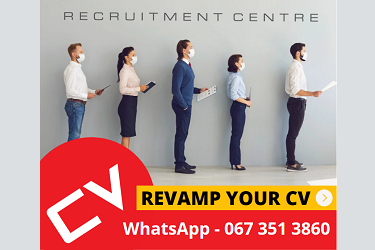With thousands of CV templates on the internet, finding the best CV writing guides and websites can often be overwhelming and confusing. Writing a CV does not have to be a headache for you. We will walk you through the steps to writing and editing your CV, not only to make writing easier, but also to help you get more interviews. Do you want your CV to stand out and help you get shortlisted for interviews? Studies have shown that on average, hiring managers spend less than 7 seconds skimming a CV. One of the best ways to pique the interest of recruiters is to include a personal profile or statement at the beginning of your CV. The reason you should write a personal profile is that you can effectively and quickly convey how you would be an asset to the company, and it is the best way to highlight specific skills related to the job you are applying for. WHAT IS A PERSONAL PROFILE? As mentioned earlier, a personal profile, also called a personal statement, professional profile, or CV summary, is a brief introduction at the beginning of your CV, in which you introduce yourself by providing an overview of your skills, experience, accomplishments, or goals. HOW TO WRITE A PERSONAL PROFILE FOR YOUR CV? Research the job for which you are applying for. Read (and understand) the job description, requirements, and responsibilities. Match these with your most important skills and focus on the skills that the job description says you can most identify with. Highlight your contributions to projects in previous or current positions. This is the right time to rave about yourself. Be sure to keep it to the point and remain professional without bending the truth… STEP BY STEP GUIDE FOR A GOOD CV PERSONAL PROFILE STEP 1: WHO YOU ARE The first sentence of a personal profile should be a brief introduction to yourself. Limit it to what you do for a living and how many years of experience you have, for example, “Marketing assistant with 5 years of experience using CRM software and SEO strategies.” STEP 2: RELEVANT SKILLS The following sentence should inform the recruiter about your skills and how they match the job profile. Remember to research the company and the job you are applying for before highlighting relevant skills. Therefore, you may need to edit this section to highlight skills that are relevant to the requirements of the company to which you are applying. STEP 3: ACHIEVEMENTS It’s always best to quantify your accomplishments to measure your performance in business, e.g., “Increase website traffic by 60% by developing effective SEO strategies and e-commerce solutions”. STEP 4: CAREER GOALS The last sentence of your personal profile should include any long-term career goals that are relevant to the position you are applying for. You can add how you plan to bring your skills to the job to achieve the company’s goals. KEY POINTS A good personal profile is short with a maximum of five sentences and ideally less than 200 words It is best to write a personal profile after you have written your CV. Find out more about the company you are applying to and keep adjusting aspects as needed Focus your personal profile on who you are, relevant skills or accomplishments, and your career goals Be concise and to the point. Do not beat around the bush or ramble. The goal is to get recruiters and hiring managers to read the other sections of your CV. You can contact us on +27 67 351 3860 or e-mail info@profcvzone.co.za for assistance with your CV



